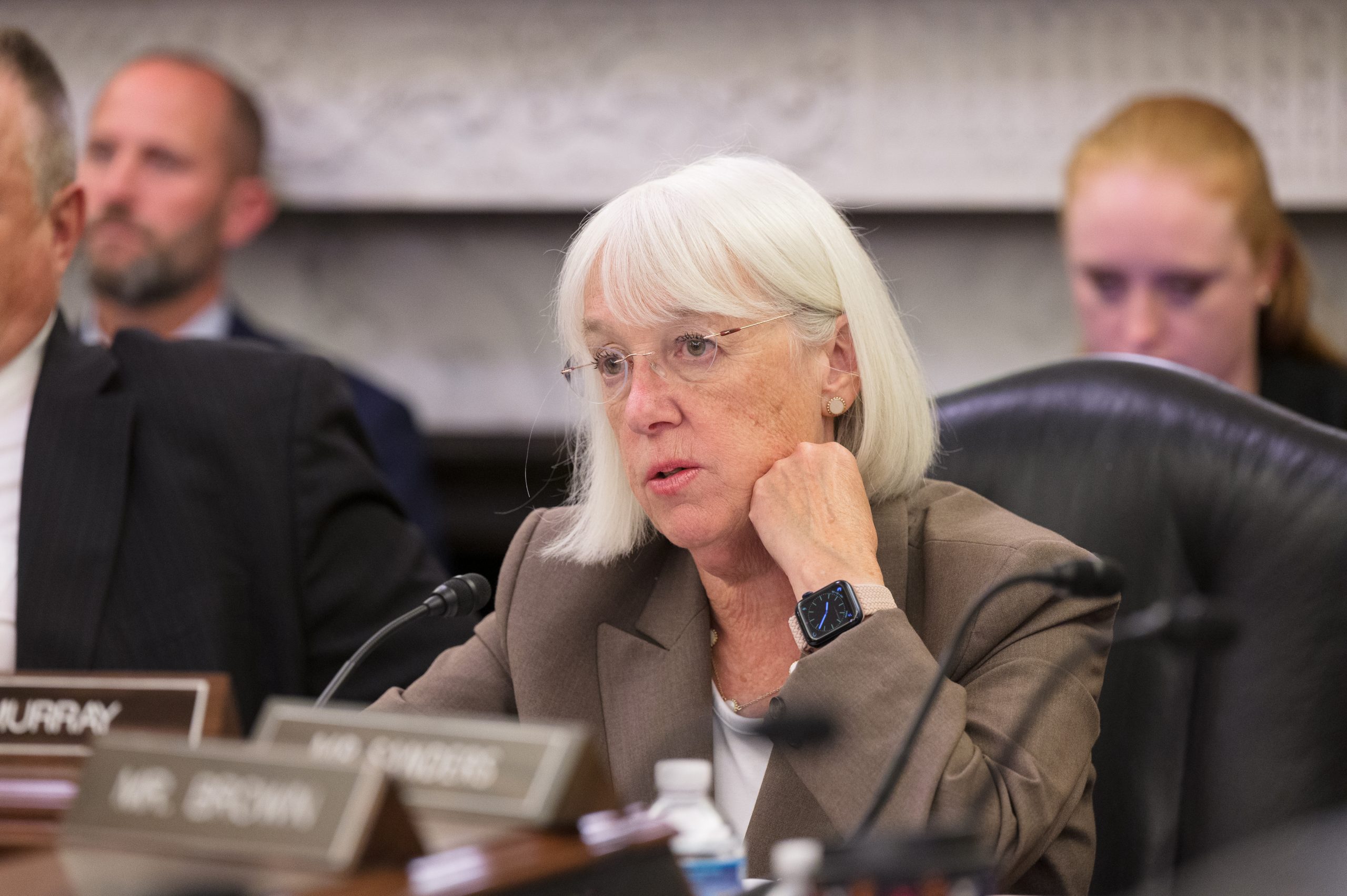Members introduce updated legislation to protect Americans’ health, strengthen environmental justice protections, and shift cleanup burden to corporations that produce fossil-based plastics
Washington, D.C. – U.S. Senator Patty Murray (D-WA), Chair of the Senate Appropriations Committee, joined U.S. Senator Jeff Merkley (D-OR) and California Representative Jared Huffman (D-CA-02) in introducing the bicameral Break Free from Plastic Pollution Act—the most comprehensive plan ever introduced in Congress to address the plastic pollution crisis that is poisoning our air, water, and land, and disproportionately impacting communities of color and low-income Americans.
Many steps to tackle the plastic pollution crisis are already widely popular with the American people. Public polling shows that two-thirds of Americans believe that businesses that produce or use plastics in their products should pay for collecting, sorting, and recycling plastics; 86% of Americans support requiring new plastic to contain at least some recycled material; and four-in-five Americans support phasing out certain non-recyclable plastics altogether.
“We have to hold big corporations accountable for the plastic pollution that is poisoning our air, water, and environment—and that includes shifting the financial incentives that for too long have allowed corporations to dodge responsibility for cleaning up the plastics they produce,” said Senator Murray. “As Chair of the Appropriations Committee, I will continue to fight for serious investments that protect the environment, the planet, and the health and well-being of our communities.”
The legislation would reduce plastic production, establish ambitious recycling targets, and protect frontline and fenceline communities from the health and environmental burdens of toxic emissions from the plastics industry through reducing production and by changing the incentives of the industry. The bill would shift the burden of cleanup to the corporations that produce the plastics so they have financial motivation to end the burning and dumping; establish a nationwide deposit return system to address beverage container waste; support reusable and refillable systems; and strengthen environmental justice protections by including the Protecting Communities from Plastics Act.
This year’s legislation is strengthened by including: new mandates for performance targets, including reducing single-use plastics and requiring all single-use beverage containers and packaging to be reusable, recyclable or compostable; stronger language for the elimination of toxic substances in beverage containers and robust requirements for incorporating post-consumer recycled content into beverage containers; stronger language for prohibiting the use of toxic substances; and strengthened environmental justice requirements for facilities, including community consultation and more stringent fenceline monitoring requirements.
In recognition of Americans’ growing concerns about plastic consumption and waste management, the Break Free from Plastic Pollution Act would provide national leadership with tools and a path forward to reduce the amount of wasteful plastic produced and reform our broken waste and recycling systems. The bill would shift the burden of cleanup and waste management to where it belongs— on the corporations that produce this waste—by:
- Requiring big corporations to take responsibility for their pollution.
- Establishing aggressive source reduction targets for single-use plastic products and beverage containers.
- Creating a nationwide beverage container refund program, which has been successful in 10 states.
- Reducing and banning certain single-use plastic products that are not recyclable.
- Establishing grant programs to support reusable and refillable products.
- Pressing pause on new plastic facilities until critical environment justice and health protections are put in place.
Senator Murray has made clear that Congress must take bold action to protect the environment and combat the climate crisis, and as Assistant Majority leader in the last Congress, she helped pass the Inflation Reduction Act—largest investment in combating the climate crisis in American history—and the Bipartisan Infrastructure Law, which included major investments in clean energy and reducing greenhouse gas pollution.
The Break Free from Plastic Pollution Act is endorsed by nearly 100 groups. See what they are saying about the Break Free from Plastic Pollution Act here.
In the Senate, the legislation is also cosponsored by U.S. Senators Richard Blumenthal (D-CT), Cory Booker (D-NJ), Dick Durbin (D-IL), Kirsten Gillibrand (D-NY), Edward J. Markey (D-MA), Bernie Sanders (I-VT), Chris Van Hollen (D-MD), Elizabeth Warren (D-MA), Peter Welch (D-VT), and Ron Wyden (D-OR). In the House, the legislation is cosponsored by Democratic U.S. Representatives Nanette Barragán (CA-44), Salud Carbajal (CA-24), Judy Chu (CA-28), Yvette Clarke (NY-09), Steve Cohen (TN-09), Gerry Connolly (VA-11), Mark DeSaulnier (CA-10), Raúl Grijalva (AZ-07), Hank Johnson (GA-04), Ro Khanna (CA-17), Barbara Lee (CA-12), Mike Levin (CA-49), Jennifer McClellan (VA-04), Betty McCollum (MN-04), Grace Meng (NY-06), Joe Morelle (NY-25), Kevin Mullin (CA-15), Jerry Nadler (NY-12), Eleanor Holmes Norton (DC-01), Chellie Pingree (ME-01), Katie Porter (CA-47), Mike Quigley (IL-05), Jamie Raskin (MD-08), John Sarbanes (MD-03), Jan Schakowsky (IL-09), Brad Sherman (CA-32), Jill Tokuda (HI-02), and David Trone (MD-06).
The full text of the legislation is here, a section-by-section breakdown is here, and a summary of the legislation is here.
###


